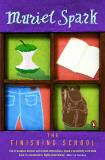
Yes, that haunting line from The Tempest. It’s one of the stories in Charles Lambert’s new collection, The Scent of Cinnamon. Topsyturvydom is proud to be one of the virtual stopping points on Charles’s virtual tour, and we will be virtually hosting him on 20th January. In the meantime, check out the tour so far at Salt, and read Charles’s always entertaining blog, which I see currently features one of my faves, David Byrne.

To Liverpool, for the Transition. My reader will recall that my views about Liverpool and its status as Capital of Culture were formed in the days when a new disaster was announced every hour on the hour, and the whole thing seemed an absolute joke. Well, time to eat my words, because, in the hands of Phil Redmond, a laughing stock was turned into a fantastic success.
There’s still a tendency in Liverpool to trade on the past – come on, the Beatles split forty years ago- and a habit of trotting out the cliches about how everybody in the city has a marvellous sense of humour and community spirit – especially, and paradoxically, when something awful, such as the murder of a child, has happened. Boris Johnson, who was lampooned in the presentation, had to apologise for offending Liverpool’s delicate sensibilities by using the “victim culture” stereotype- but at the time, Liverpudlians just subscribed to another stereotype.
Someone who had a similar experience to mine is the estimable Lynsey Hanley, who also mentions that bizarre phenomenon of the outdoor pyjama-wearer, but in a serious context. I noticed on my last visit to Liverpool that peculiar juxtaposition of dereliction and prosperity that she comments upon.
The transition night was great fun.
 Big screens at the Pier Head showed a fast-changing collage of the year’s events to the accompaniment of a soundtrack that cleverly referenced everything from Sgt Pepper to the La’s (always hated that apostrophe) though, of course, Lennon’s dreadful Imagine dirge had to be in the mix. It was all narrated by a bizarre disembodied Roger McGough head.
Big screens at the Pier Head showed a fast-changing collage of the year’s events to the accompaniment of a soundtrack that cleverly referenced everything from Sgt Pepper to the La’s (always hated that apostrophe) though, of course, Lennon’s dreadful Imagine dirge had to be in the mix. It was all narrated by a bizarre disembodied Roger McGough head.
 The official handover was done to the Lord Mayors of Linz and Vilnius- no speeches, as the thumping soundtrack was still going. (By the way, when did we finally crack the problem of public address systems, which, by definition, were always inaudible? At Liverpool, and in train stations, and football stadia, it’s crystal clear now). Then a huge firework display – the best I’ve ever seen, and then 30,000 people went off to roam the streets, shop, visit art galleries and museums, and generally have fun. We had a brief visit to a very crowded Tate, where we had a glimpse of Blake’s work, an even briefer visit to an even more crowded Bluecoat, and finished with an excellent pint or two at the Lion, before taking the train back to where we were staying (thanks for a great night out and, as usual, marvellous hospitality, Robert and Christine)
The official handover was done to the Lord Mayors of Linz and Vilnius- no speeches, as the thumping soundtrack was still going. (By the way, when did we finally crack the problem of public address systems, which, by definition, were always inaudible? At Liverpool, and in train stations, and football stadia, it’s crystal clear now). Then a huge firework display – the best I’ve ever seen, and then 30,000 people went off to roam the streets, shop, visit art galleries and museums, and generally have fun. We had a brief visit to a very crowded Tate, where we had a glimpse of Blake’s work, an even briefer visit to an even more crowded Bluecoat, and finished with an excellent pint or two at the Lion, before taking the train back to where we were staying (thanks for a great night out and, as usual, marvellous hospitality, Robert and Christine)

To a well-known supermarket (not T*sco, obviously) with ‘er indoors to purchase such Christmas baubles as we require for our frugal Winterval celebration. Amongst the seasonal tat, I discover a
CD of Ella Fitzgerald for one of your English pounds, or Euros, as we now call them. A quid! I spent £2.95 on a very indifferent coffee at Piccadilly station last week. For a third of that, I get Ella with Satchmo, the Inkspots, Louis Jordan and others singing a great collection of classic tunes. I can’t think of anything for a pound that would give me greater pleasure.
Over the tannoy in a supermarket yesterday:
“Can a member of price integrity go to aisle 24, please? Customer waiting.”
Price Integrity? Do you think there’s a Price Integrity team? Do they have team meetings where they pledge to uphold price integrity against all threats? Do they finish with a group hug and a rousing chorus of “Simply the Best?”

A colleague (thanks Anthony!) drew my attention to this rant from Susan Hill. It’s not the first time she has expressed her views on this topic, and doubtless won’t be the last as long as GCSE and A level students see the reading of books as a chore to be got through as painlessly as possible and with the least possible effort. I don’t think it’s actually their fault: the system encourages it, and has been running like this so long now, that, as “Suze” points out, there are teachers with the same attitude. I have commented in similar fashion myself before now.
Ms Hill used to publish a lively blog until she suddenly pulled it recently. At the time, I thought it might be because she’d received criticism for a post which, without apparent irony, praised Sarah Palin to the skies. I wonder if actually she just became so fed up with being accessible to all and sundry that she just felt she should concentrate on her writing.
We have a generation of students now for whom failure is not possible. A “pass” rate of 97% at A level means, in essence, that you pass by turning up. Coursework can, it seems, be endlessly deferred, and multiple attempts can be made to improve it. I have had to explain very patiently to lots of students what a deadline is, and also counsel them when they relapse into shock at the notion that once work is marked, that’s it.
The idea that students of Literature might actually enjoy reading is seen as a quaint one by many eighteen-year-olds. I notice a distinct difference in the attitude of older students, who accept with equanimity, and, indeed, enthusiasm, the instruction to read a book – a whole book!- for next week’s class.
I don’t think there’s any way round this. We need to re-establish in schools the habit of reading, and reading entire texts rather than the bleeding chunks beloved of A level syllabuses. I’ve no confidence that this will actually happen of course.

On the train to Stafford yesterday, the announcement for each stop went:
“We will shortly be arriving at Stoke. Stoke is the next stopping station on this service today”
How is this better than “The next stop is Stoke”?

On the train to York yesterday, I was startled by an announcement: “The Pennine Host will shortly be passing through the train.” I had a vision of some grizzled warriors dressed in sheepskins, rampaging through the ranks of commuters prior to a spot of ritual boat (or train) burning. Turns out it was a bloke wheeling a tea trolley.
.

..and no, I don’t mean I tool along with War and Peace propped open on the dashboard. What strikes me as I make my journey to work, largely on motorways these days, is how vans and trucks have become mobile advertising hoardings, with a sprinkling of mission statement thrown in.
Years ago, if you were in the business of moving stuff from one place to another, you would call yourself a haulier, and your lorry would say something like “Thos. Jenkins, Hauliers, Derby”. There would be a phone number, and, if you were at the cutting edge of technology, a fax. (By the way, what is the point of putting phone numbers on the side of trucks? Do people say, as they speed past, “Oh look darling, there’s an Eddie Stobart – just scribble down the phone number, will you?”) Now, however, the vehicle has to make a statement. So, forget being a haulier- you are in distribution, or, better, logistics. You don’t want anything as obvious as your own name as the identifier of your company. You need to have a name that is preferably meaningless, and you need to combine it with a statement about what you do. So now, you may go on the road as something like “Interlock Logistics – delivering quality to the nation”. Recently, of course, no activity has been considered worthy unless it contains the “solutions” tag. So, as we have seen, supermarkets now sell “meal solutions” instead of meals, hardware stores sell “DIY solutions” instead of tools, and one insurance company I noted wanted to sell me “risk solutions”. It’s all documented fortnightly in Private Eye, though not in the online version, I notice. This raises the stakes, of course, as haulage now has to become “logistics solutions”, and the mission statement becomes ever more complex as companies struggle to present themselves as distinctive. Thus, a firm that might have got by with “Perkins: Refrigerated Distribution” a few years ago now has to have “Ice-spire: Delivering Coldchain Logistics Solutions to the Frozen Food Industry Community” or some such abomination.
There are some compensations to this thin reading diet on the road, though. I forgave one catering company its incorrect use of the apostrophe in “Caterer’s” for its notice on the back of the van “No cakes are left in the van overnight”. My favourite, though, is the firm of electricians I often spot on the way to work. Their logo is unmistakeable – a silhouette of a head with an aquiline nose, with a deerstalker and pipe. The name of the company? “Mr Ohms”.

This novel was sent to me by Penguin, so that I could add a review to their Blog a Holiday Read site, where, apparently, it will appear sometime. You, discerning reader, can read about it now though.
Many things are coming to an end at the faux-bohemian College Sunrise: not just the education of a motley bunch of multi-national teenagers, but also the marriage of the proprietors, Rowland and Nina, and Rowland’s grip on sanity. It also marks another ending too: Muriel Spark, at the age of 87, published this novel in 2004. It was her last work. It is a testament to her vitality that the novel is as witty, sly and mordantly funny as the books for which she is most famous, Memento Mori, and, of course, The Prime of Miss Jean Brodie.
The major conflict in the novel is between Rowland, whose youthful success as a playwright he cannot now replicate, and Chris, precocious and faintly sinister red-haired prodigy, whose half-written novel about Mary, Queen of Scots triggers a bout of uncontrollable jealousy in the older man.
All this detail and much more is deftly delineated in the opening pages of this slight but immensely enjoyable novel. Spark’s reputation for a kind of elegant nastiness, most obviously on show in novels such as The Abbess of Crewe and The Ballad of Peckham Rye, is certainly sustained here. The lives of the characters are sharply observed, with the telling detail often being used to skewer the pretensions of her cast of minor European royals, county-set girls, ambitious youths and phlegmatic locals. The running joke throughout is that Rowland, consumed utterly by his jealousy of Chris, has writer’s block, but is obliged to teach creative writing.
Those reviews that claim this is a satire on the publishing industry seem wide of the mark to me. True, a couple of publishers are exposed as shallow and grasping, but then, no-one emerges as wholly pleasant, as Spark anatomises the rivalries, ambitions and narcissism of her entirely believable characters.
This novel is not great literature, yet it is compelling, a genuine page-turner that can be read in a day with comfort. What keeps you turning the pages is the sheer pleasure of discovering what the next development will be in this fascinating tale of obsession and jealousy.

This is not the sort of book I would usually read, but since I was going to be in Tuscany for seven days, I thought it seemed an appropriate travelling companion. Evidently, it’s a sequel to her A Thousand Days in Venice, and there are other volumes on Umbria and Sicily- so you can see a pattern, no? In the Venice volume, this American-Italian gourmet journalist of a certain age meets, falls in love with, and marries Fernando, a Venetian banker. The sequel chronicles their new life in a Tuscan village. It’s a romanticised version of Tuscany, to be sure, and the heavy emphasis on the food of the region contributes to the production of a bucolic utopia only occasionally darkened by the intrusions of modern life.
Having made a leap into the dark by deciding to forge a new life in Tuscany, the couple immediately become the gastronomic heart and soul of the village, a fixture at the Bar Centrale, and enthusiastic preservers and revivers of old Tuscan customs. Their main ally in this project is a kind of village elder called Barlazzo whose knowledge is apparently infinite- he becomes their guide.
It’s an entertaining journey, following the rustic rituals of the calendar, interspersed with recipes that, to this vegetarian seem somewhat long on preparation and short on consumption. My favourite was a leg of pork marinaded in three bottles of wine and cooked over seven days in a specially built outdoor oven. Life’s too short.
The author, clearly a somewhat head-in-clouds romantic, veers off from her account of the ways of the Tuscan peasant occasionally to indulge in the kind of soul searching often to be found in those “follow your dream” life coaching manuals beloved of Americans. These passages are rather cloying, but they are compensated for by the pervasive presence of Barlazzo, for me the hero of this book. It is his dark secret that provides a teasing thread through the narrative.
Barlazzo’s status as the village chieftain (de Blasi calls him ‘the duke’) is undisputed, and he is at the heart of every culinary activity. He also provides the historical and cultural context in not entirely credible style when, for no apparent reason, he decides to recount the history of Tuscany in guide book fashion. These sections are clunky, and although the context is useful, I don’t see why de Blasi couldn’t have told us in her own voice.
The book is published here by Virago, once fiercely feminist but now just another imprint of the giant Hachette empire. The text is, as is the way of things these days, resolutely American, so the usual linguistic differences occur- rigor, clamor, practicing, fall and so on. Less acceptable, it seems to me, is the use of ‘sharecroppers’ for the Tuscan tenant farmers, and ‘unphased’ for ‘unfazed’.

It’s an enjoyable read, especially if, like I did, you read it whilst gazing out over a beautiful Tuscan valley as pictured above. It’s educational too, as even herbivores are provided with some useful recipes. And now I can pronounce ‘bruschetta’ correctly.









